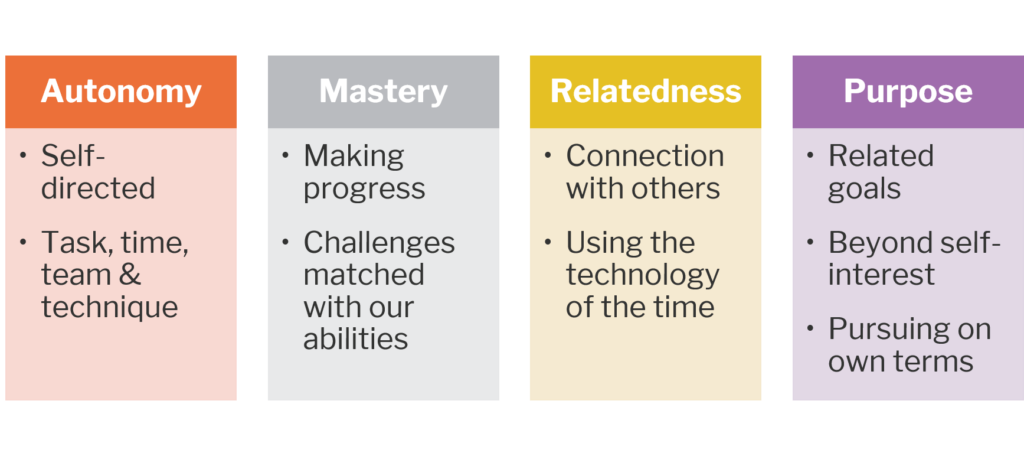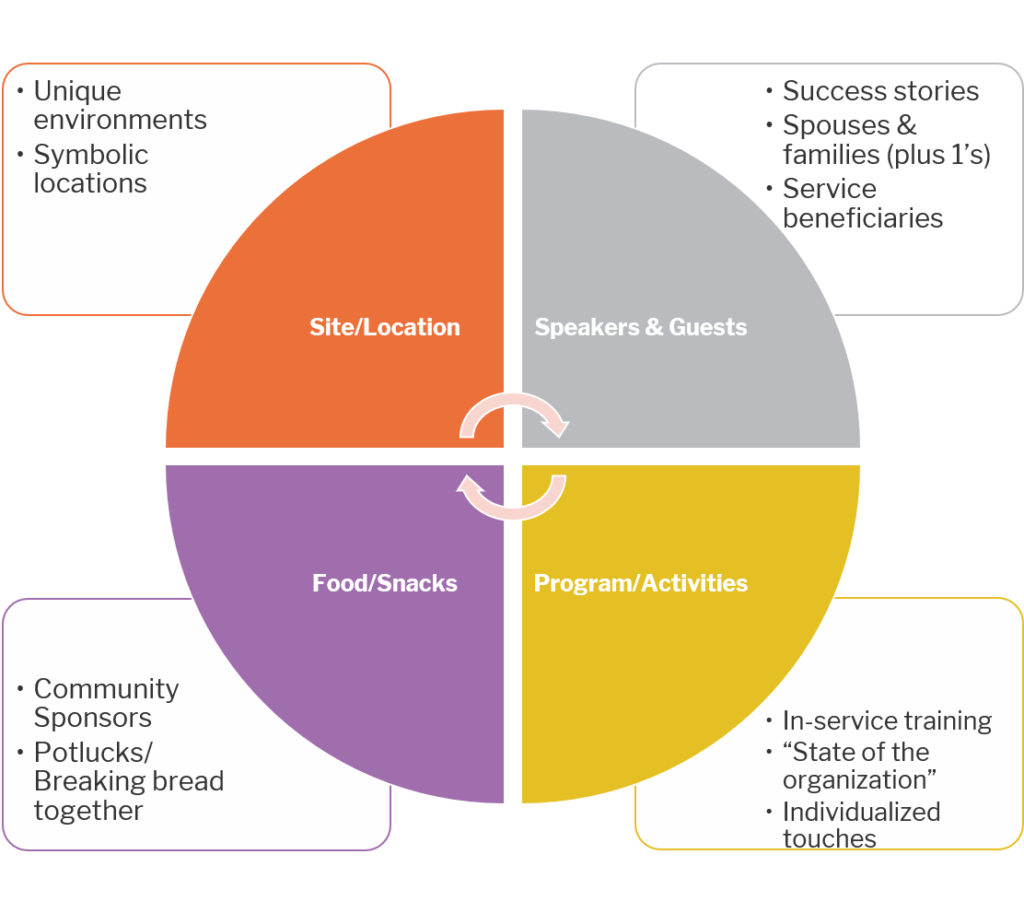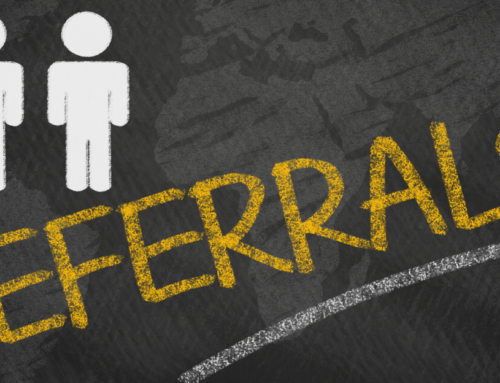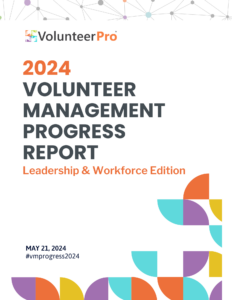How to Deepen Connections Through Purposeful Volunteer Recognition and Rewards
Showing volunteer recognition on a regular basis is a high impact management strategy that can boost volunteer satisfaction and is a key driver of high volunteer retention rates.
But, how do you weave recognition into your daily practice, rather than reserving it for one week out of the year? And, how can you pull this off with a limited, or no, budget?
Read on and you will learn that there are plenty of meaningful, low-cost ways to acknowledge the valuable work of volunteers.
These simple volunteer recognition activities can keep volunteers motivated and engaged all year long using methods that are inspiring and easy on the budget.
Why You Need a Volunteer Recognition Strategy
The first step in creating a volunteer recognition strategy is to become aware of why people volunteer at your organization and crafting volunteer recognition rewards and activities that align with those motivations.
Gone are the days of handing out trophies, coffee mugs, and certificates that will sit and gather dust for years to come. Research proves that the motivation to remain committed to a cause is through intrinsic versus extrinsic rewards.
In fact, offering extrinsic rewards for service can actually do more harm to your volunteer retention rates. Motivation can wane, performance can be less than stellar, and it can foster short-term thinking, when you want to focus on long-term impact.
Remember why volunteers first got involved with your organization. Most likely it was because they want their work to have an impact, they want to be confident they can make that dent in the universe in partnership with your organization.
Recalling their motivations to volunteer, be sure you give your volunteers the opportunity to achieve their goals and encourage them to reflect on their successes.
Science tells us that there are four main motivators in regard to performing work related tasks:
When you align motivations to volunteer with your volunteer recognition strategy, your volunteers will be more likely to feel the love!
What Does Day-to-Day Volunteer Recognition Require?
Positive feedback has the power to instill immense feelings of appreciation in your volunteers, all without having to rely on a large budget. Weaving feedback measures into your everyday recognition strategy will have a positive impact on what your volunteer program can accomplish.
Here are some ideas to get you started:
- Show Volunteers You Believe in Them (in words and actions)
- Boost Confidence and Security with Clear Expectations
- Point to the Connections Between Their Work and the Mission
- Catch Them Doing Things (Approximately) Right
- Give Personalized Recognition (for Accomplishment and Effort)
- Express Authentic Gratitude Early & Often
- If You Don’t Know, Ask How Volunteers Would Like to Be Recognized (or how they would like to celebrate their successes)
Before you start implementing these measures, ensure that you are practicing authentic praise, versus simply checking off another task on your long list of things to do.
There are five keys to authentic praise:
1) Timely – When you observe great performance
2) Specific – To the accomplishment (vs. a general “great job!”)
3) Empathetic – Acknowledging the sacrifice or effort it took
4) Meaningful – Linking it back to the mission
5) Frequent – Shown on a daily basis
For example, think about a soup kitchen that serves the homeless. Most volunteers sign up thinking that’s exactly what they are there for: serving meals. However, the volunteer coordinator for the shelter needs help after food service to help clean up.
You might think all is lost; however, a little positive reinforcement can go a long way in encouraging volunteers to go the extra mile.
“Victor, I really appreciate that you stayed late to clean up the kitchen after your shift.
I know it was a last-minute request for help, but you jumped right in with such a helpful attitude. I know you probably have other plans tonight, so I’m really grateful.
Keeping our facility clean is an important way we show our guests that we take their health and safety seriously.”
One of the keys to this kind of recognition?
Don’t wait until the end of a big project or at your volunteer recognition event! Acknowledge your volunteer’s contributions of time and talent, big and small, all year round. You can also send thank you notes to spouses, partners, bosses, and kids for supporting the volunteer in their community work!
This doesn’t have to take a lot of time and effort on your part. Consider creating a small box that is in your work space that includes the following:
- Cards and Envelopes
- Stamps
- Return Address Label
- Access your volunteer’s contact info
You also need to keep track of specifics about your volunteer’s & their accomplishments, consider filling a notebook with notes, or creating and online database using Evernote.
In addition, you can find tons of ideas for creative and low-cost appreciation items on website such as Pinterest. Simply search for terms like volunteer recognition, teacher appreciation, and PTA appreciation.
The most effective of these gifts are “unplanned” surprises that delight versus passing out tchotchkes at recognition events.
How to Plan Volunteer Recognition Events
Formal events, when planned with purpose, can be an important part of a complete volunteer recognition strategy.
There are four aspects to planning a meaningful volunteer event:
1) Site/Location
- Consider someplace unique (e.g., city park) & symbolic locations (e.g., civil rights museum)
2) Speakers & Guests
- Tell success stories (challenges that resulted in triumph)
- Make space for expressions of appreciation between volunteers
- Ask those who have benefitted from the volunteers’ work to speak
- Invite spouses or families and thank them, too
3)Program/Activities
- Read thank you notes from clients aloud
- Create opportunities for volunteers to view themselves as those helping humanity (e.g. make a donation on their behalf)
- Individualize acknowledgements (comments, notes, name tags, table tents) as much as possible
- Provide a “state of the organization” update & “sneak peeks” of the future
- Get input on a proposed initiative
- Include in-service training on topics of high interest to volunteers
- Include time for reflection of the meaning of their work
- Make space for socializing & “supported” networking & teambuilding
4) Food
- Ask community businesses & local experts to sponsor
While it is challenging to hold face-to-face events at this moment in time due to COVID-19, check out what we have to say about holding online volunteer appreciation events.
What is Multi-Level Volunteer Appreciation?
To ensure a positive volunteer experience, you must “encompass all aspects of the end-user’s interaction with the company, its services, and its products.”
This means you need to adopt a 360° Volunteer Appreciation approach.
What does a 360° Volunteer Appreciation approach include?
1) A strategy to improve the volunteer experience
2) Acknowledgement from all levels of the organization
3) Focused on what truly motivates your volunteer team
4) Offers rewards at every step of the volunteer lifecycle
5) A mix of formal and informal recognition activities
6) Has the ultimate goal of strengthening relationships & deepening engagement
Do You Have a Volunteer Recognition Strategy?
Let us know in the comments! Did anything we suggest come as a surprise to you? Is there more you can do to recognize your volunteers on a regular basis?
Looking for more training and support?
Enroll in our 360° VOLUNTEER APPRECIATION course and learn how to build an inspired recognition & reward strategy that keeps volunteers coming back.
In this focused, on-demand course, you will learn how to develop a multi-tier volunteer recognition plan that rewards volunteers at every step of their lifecycle and keeps them inspired and engaged, all without breaking your budget.










